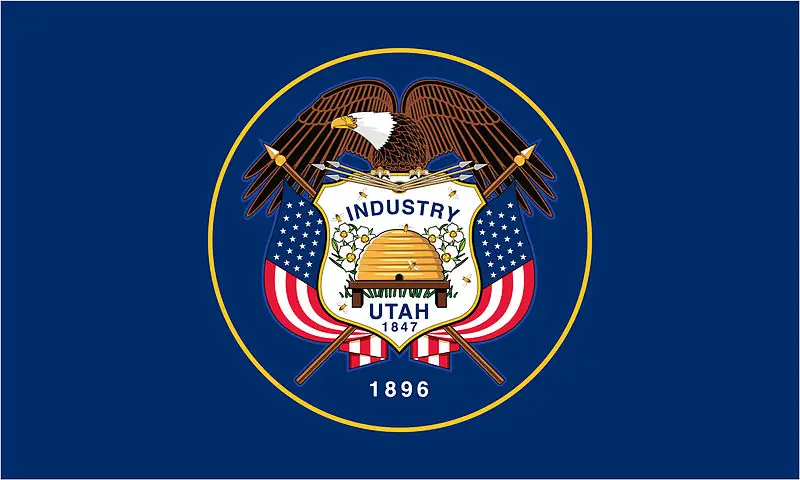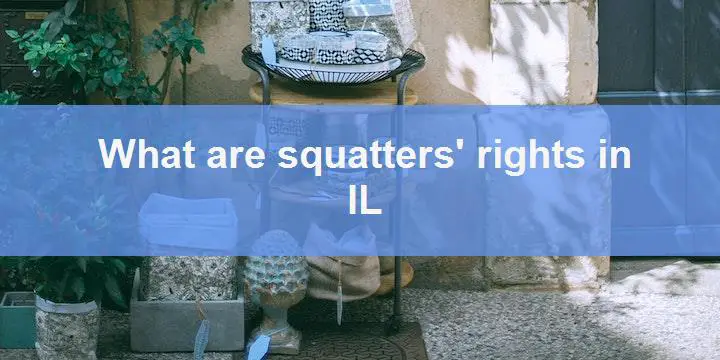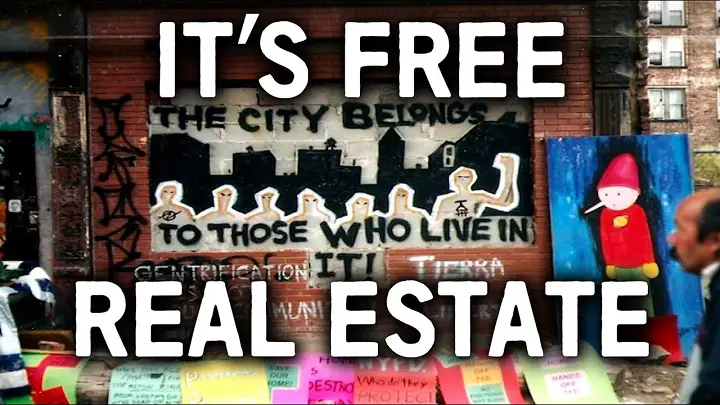Squatters, people who occupy land or property without legal ownership, have been a topic of debate for many years. In the state of Utah, the rights of squatters are widely debated, with varying opinions on their legitimacy. While some argue that squatters should be granted certain rights, others believe that they should be evicted immediately. If you are curious about what squatters’ rights are in Utah and how they may be affected by land ownership and other legal considerations, read on to learn more about this complex issue.
To answer the question “What are squatter’s rights in Utah?” in the most general sense, it is important to emphasize that squatting, or occupying a property without legal ownership or a lease agreement, is illegal in Utah. Utah law allows property owners to initiate eviction proceedings against squatters who refuse to vacate the premises. Therefore, the most important thing to consider here is to abide by Utah law and ensure that you have legal ownership or a lease agreement before occupying a property. It is advisable to seek legal guidance from an attorney in case of any confusion or uncertainty about your rights and responsibilities as a property owner or tenant in Utah.
What is the squatting/squatter?
Squatting refers to the act of occupying an abandoned or unoccupied property without the permission of the owner. People who engage in squatting are known as squatters. Squatting is often considered illegal and is viewed as a form of unauthorized occupation of a property. Squatters primarily occupy buildings such as houses, apartments, or factories, and they may even establish communal living arrangements to share resources and communal spaces. Some squatters consider their presence in the property as a form of protest against property rights and the housing crisis. However, squatting may also have negative implications for the property owner, such as damages caused to the property or loss of rental income. Squatting laws and regulations vary from country to country, and it is important to understand the legal implications of squatting.
What is an example of a squatter?
A squatter is a person who settles on land or in a property without legal permission or rightful ownership. An example of a squatter could be an individual or group of people who occupy a vacant building or unused land without obtaining permission from the legal owner. They may use the property as a temporary home or shelter, often for free or for minimal rent. Squatters are often viewed as problematic by legal authorities because they can cause uncertainty and instability in the property market. In some cases, squatters may face eviction, fines, or legal charges from the rightful owner of the property.
What is Adverse possession in Utah?
Adverse possession in Utah is a legal concept where an individual acquires ownership of another person’s property after occupying it for a certain period of uninterrupted time. In Utah, the duration of continuous possession required before an individual can claim adverse possession is seven years. For adverse possession to apply, the possession must be actual, open, notorious, exclusive, and hostile. Actual possession refers to physically occupying the property, while open and notorious possession means that the occupation has been visible and obvious to the public. An individual’s possession must be exclusive, meaning they have sole occupancy and control over the property, and it must be hostile – without the permission of the property owner. If these conditions are met, a person can file a claim for adverse possession in Utah. However, adverse possession cases can be complicated, and it is essential to consult with an experienced attorney in Utah to ensure that your rights are protected.
Is it legal to squat in Utah?
It is generally not legal to squat in Utah without permission from the property owner. Squatting refers to occupying a property that one does not own or have permission to use. This is considered a form of trespassing and can result in criminal charges. Utah law allows property owners to use reasonable force to remove squatters from their property. Additionally, Utah law states that anyone who enters a property without permission and causes damage, even unintentionally, can be held liable for the cost of repairs. Therefore, it is important to obtain the proper permission and legal documentation before occupying a property in Utah.
Can police remove squatters in Utah?
Squatters in Utah are individuals who unlawfully occupy and reside in a property without the owner’s permission. The process to remove them can be complicated, and in some cases, the police can play a role in the eviction process. In Utah, the police have the authority to intervene if the squatters violate any laws such as damaging property, committing theft or other criminal offenses. However, if the squatters do not violate any laws and are merely occupying the property, the owner must follow a legal eviction process to remove them. This involves going to court and obtaining an eviction order which must be served to the squatters. If the squatters fail to vacate, the owner can then request police assistance in removing them. It is essential to follow legal process to avoid any potential legal consequences as failure to do so may result in criminal charges.
How to evict squatter in Utah?
If you are a property owner in Utah facing the issue of a squatter occupying your property without permission, it is important to take action to evict them as soon as possible. The first step is to serve a notice to the squatter, informing them that they are occupying your property illegally and need to vacate the premises immediately. If they do not leave after the notice, you can file an unlawful detainer action in court to obtain an eviction order. It is advisable to hire an attorney
FAQ
Q: What are squatters’ rights?
A: Squatters’ rights refer to laws that allow a person to claim ownership of a property they have been occupying without the owner’s permission for a certain period.
Q: Does Utah have squatters’ rights laws?
A: Yes, Utah has adverse possession laws that allow squatters to gain legal ownership of a property under certain circumstances.
Q: What is required to claim adverse possession of a property in Utah?
A: To claim adverse possession of a property in Utah, the squatter must meet specific criteria, including continuous and exclusive possession of the property for at least seven years.
Q: Can a property owner do anything to prevent squatters from claiming adverse possession?
A: Property owners can take several steps to protect their property from adverse possession, such as posting “No Trespassing” signs, regularly inspecting the property, and filing legal actions against squatters.
Q: What are the potential consequences of illegal squatting in Utah?
A: Illegal squatting can result in criminal charges, fines, and civil lawsuits for damages.
Also Reading




